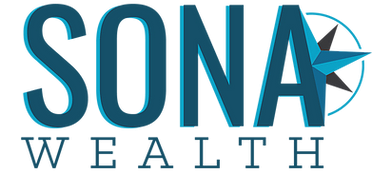Menu
Bullet Point Summary: – The episode discusses relocating to low-income tax states, a trend that was seen among people moving from high-tax states like New York and Minnesota to states like Florida and Texas for tax benefits and warmer weather. – Total tax burden should be considered, including local and state taxes, as well as whether a state taxes Social Security benefits. – It’s advisable to use software with a CPA or financial planner to project taxes in a different state and assess the impact of relocation. – Property taxes can offset income tax savings, especially in states with high property tax rates, and home affordability is crucial as housing costs can vary widely. – Insurance costs may also increase with the value of the home and other factors like increased automobile insurance rates. – Quality of life and access to a community with shared interests, such as running or pickleball, are essential for social well-being in retirement. – Infrastructure and amenities, such as trails or lakes, should not be overlooked, as they contribute to the enjoyment and activity options in a state. – The overall cost of living, including healthcare, utilities, and groceries, as well as specific tax implications for income earned in the original state, must be taken into account to avoid any financial surprises. Themes: a. Holistic Approach to Retirement (00:00:00–00:00:31) b. Relocating to Low Income Tax States (00:00:31–00:08:49) – Total Tax Burden and Other Taxes Beyond Income Tax (00:01:59–00:02:18) – Property Taxes and Other Cost Considerations Such as Housing (00:02:58–00:04:30) – Quality of Life and Social Connections (00:04:44–00:06:25) – Infrastructure and Local Amenities (00:06:25–00:07:15) – Cost of Living, Including Health Care and Groceries (00:07:51–00:08:14) – Tax Implications on Various Forms of Income (00:08:49–00:09:12) – Making an Informed Decision (00:09:13–00:09:45) Contextual Connections: a. The introduction sets the stage for a comprehensive view of retirement planning, emphasizing the integration of financial, social, physical, and emotional factors (00:00:00–00:00:31). b. Mark Struthers swiftly moves on to discuss the trend of retirees relocating to states with lower income taxes, a subject he closely links to financial planning and the necessity of informed decision-making (00:00:31–00:08:49). c. He delves into the intricacies of tax burdens, urging listeners to consider not just income tax but also property tax, potential tax benefits, and the cost implications related to housing in different states (00:01:59–00:04:30). d. Struthers raises the critical aspect of quality of life, exploring how social relationships and having a community can profoundly impact individual happiness and overall well-being in retirement (00:04:44–00:06:25). e. Infrastructure and amenities are discussed as factors that contribute to quality of life, possibly affecting the decision to relocate based on the availability of trails, lakes, and other recreational facilities (00:06:25–00:07:15). f. Touching on job opportunities for those contemplating part-time work in retirement, Mark highlights the importance of assessing local labor markets and economic stability in the region (00:07:29–00:07:51). g. The cost of living theme expands to consider the affordability of healthcare, the influence of location on health insurance costs, and the price differences in utilities and groceries across states (00:07:51–00:08:14). h. He concludes by addressing the complexity of tax implications on different forms of income, emphasizing that potential retirees need to be aware of how specific income could be taxed in the state where it was earned (00:08:49–00:09:12). Timestamps and Speaker Relevance: a. The host, Mark Struthers, leads the entire conversation. He moves between the themes naturally, often iterating timestamps when transitioning from one topic to the next, securing a fluid and informative session for listeners. Insights: Overall, the dialogue paints a comprehensive picture of financial acumen interlaced with a deep understanding of how emotional and social factors contribute to a well-rounded retirement. Disclosure: Investment advisory services are offered through Sona Financial LLC (DBA Sona Wealth Advisors, Sona Wealth, Sona Wealth Management), an investment adviser registered in the state of MN. Sona Financial only offers investment advisory services where it is appropriately registered or exempt from registration and only after clients have entered into an investment advisory agreement confirming the terms of engagement and have been provided a copy of the firm’s ADV Part 2A brochure and document. This video is for educational purposes only. Nothing discussed during this show/episode should be viewed as investment advice. If you have questions pertaining to your specific situation, please consult your own financial professional.
